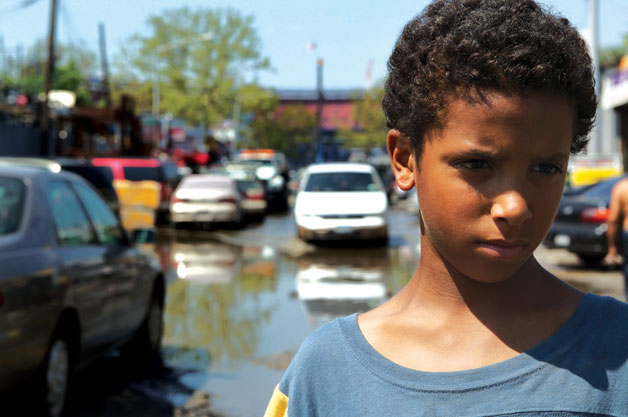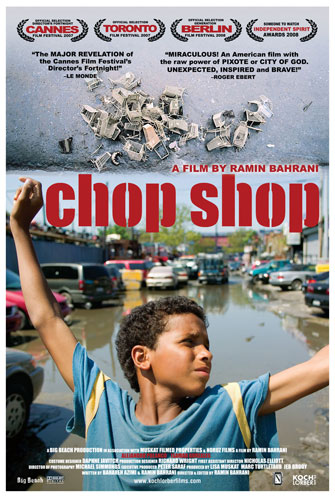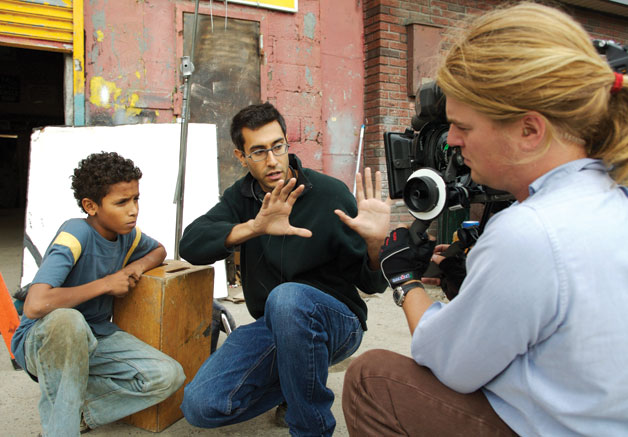CHOP SHOP
 |
| By Roger Ebert
Sometimes in a smaller theater, away from the searchlights and the 24-hour fans making privacy impossible for poor Brad and Angelina, you find an independent film that is miraculous. Such a film is “Chop Shop,” by Ramin Bahrani, the Iran-born American director whose “Man Push Cart” made such a stir three years ago. That film was about an immigrant from Pakistan trying to make a living in New York with a rented coffee-and-bagel cart. It was shot on a shoestring in less than three weeks, and won the critics’ prize at London and three Independent Spirit Awards, including best first feature. It embodied, I said in my review, the very soul of Italian neorealism. |
 First a word about Willet’s Point. Bahrani observes in his notes that this area was the original Valley of the Ashes in Scott Fitzgerald’s The Great Gatsby. Now it is a 75-acre district called “the Iron Triangle,” a third world clone jammed with auto and body part shops and the population that lives off of them. Alejandro (all the actors use their real names) hustles customers for his boss’s shop, learns the auto repair trade, peddles M&Ms on the subway, does some hubcap-stealing and purse-snatching, and dreams that he and his sister will own their own taco and beans truck. He and Isamar, both from Puerto Rico, spontaneously, joyously like each other, and one of the movie’s scenes of heartbreaking reality shows them at horseplay—just a couple of kids, in a world of unremitting poverty. Bahrani’s camera lives in their lives. There is no false sentiment in his story, just a fascination with these characters. The area is across the expressway from Shea Stadium and in the LaGuardia flight path, but seems to be in another world than the United States. And yet the ingenuity and improvisation of this brother and sister forces the Iron Triangle to support them, sometimes by any means necessary. Now we have an American film with the raw power of “City of God” or “Pixote,” a film that does something unexpected, and inspired, and brave. |
 |